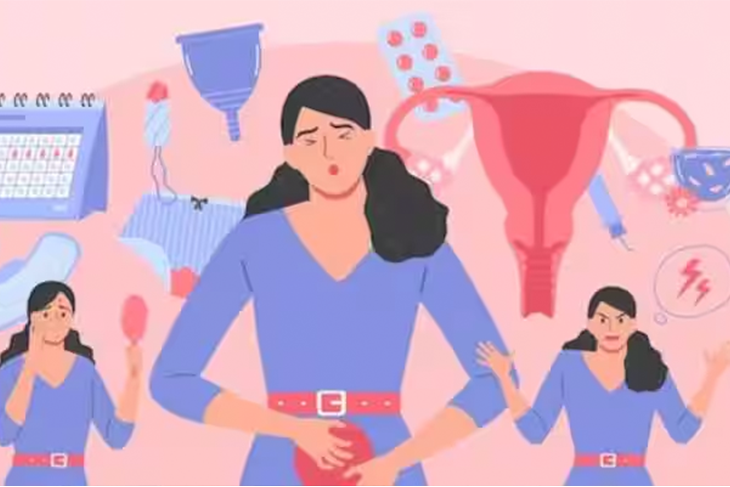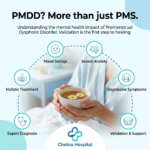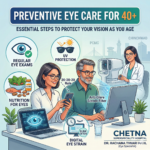Menstrual health is an essential part of a woman’s overall well-being. While periods may seem like a routine monthly occurrence, the way they affect our bodies changes over time. From the teenage years to postmenopause, menstrual health needs and concerns vary. Understanding these changes — and knowing how to care for your body at each stage — can help you maintain good reproductive and overall health.
In this blog, we’ll explore menstrual health tips for every age group.
Teenage Years (13–19): Laying the Foundation
The teenage years mark the beginning of menstruation, also known as menarche. In the first few years, cycles may be irregular as the body adjusts to hormonal changes.
Common menstrual concerns in teens include:
- Irregular cycles
- Painful cramps (dysmenorrhea)
- Heavy or prolonged bleeding
- Premenstrual mood swings
Tips for Healthy Menstrual Care in Teens:
- Track your cycle – Use a diary or a period tracker app to note the start and end of periods, flow levels, and symptoms.
- Eat iron-rich foods – Leafy greens, beans, lentils, eggs, and fortified cereals can prevent anemia caused by blood loss.
- Maintain hygiene – Change sanitary pads or tampons every 4–6 hours to avoid infections.
- Stay active – Gentle exercises like walking, yoga, or swimming can help ease cramps and improve mood.
- Seek medical advice for severe symptoms – Heavy bleeding, cycles longer than 45 days apart, or extreme pain should be discussed with a gynaecologist.
20s: Building Healthy Habits
In the 20s, most women have more regular cycles, but lifestyle changes, stress, and contraceptive use can affect menstrual health. This is also a time when reproductive planning may become relevant.
Common menstrual concerns in the 20s include:
- Stress-related cycle changes
- Pain during periods or ovulation
- Side effects of hormonal birth control
- Early signs of conditions like PCOS or endometriosis
Tips for Menstrual Care in Your 20s:
- Prioritise a balanced lifestyle – Maintain a nutritious diet, regular exercise, and adequate sleep to keep hormones balanced.
- Manage stress – Try meditation, deep breathing, or hobbies to keep cortisol (stress hormone) levels in check.
- Practice safe sexual health – Use protection to prevent sexually transmitted infections (STIs), which can affect reproductive health.
- Schedule annual gynaec check-ups – Early detection of reproductive health issues ensures timely treatment.
- Watch for unusual symptoms – Sudden changes in flow, extreme cramps, or irregular cycles may need medical attention.
30s: Balancing Health & Hormones
Your 30s are often a busy decade with career, family, and personal responsibilities. Hormonal changes, pregnancy, and postpartum recovery can all influence menstrual health.
Common menstrual concerns in the 30s include:
- Heavier or lighter flow than usual
- Irregular periods after pregnancy
- Fibroids or endometrial changes
- Premenstrual symptoms (PMS) becoming more intense
Tips for Menstrual Care in Your 30s:
- Monitor changes in your cycle – Keep track of any variations in length, flow, or pain.
- Get regular screenings – Pap smears, pelvic exams, and ultrasounds if advised by your doctor.
- Maintain bone health – Include calcium and vitamin D in your diet to support overall well-being.
- Focus on heart health – Regular exercise and a balanced diet help reduce cardiovascular risks, which begin to rise after 30.
- Seek advice for fertility concerns – If trying to conceive for over a year without success, consult your gynaecologist.
40s: Perimenopause Awareness
The 40s are often the stage when perimenopause — the transition before menopause — begins. Hormone levels fluctuate, and cycles may become shorter, longer, heavier, or lighter.
Common menstrual concerns in the 40s include:
- Irregular cycles
- Hot flashes, night sweats
- Mood changes
- Heavy or prolonged bleeding
- Increased risk of fibroids and polyps
Tips for Menstrual Care in Your 40s:
- Track cycle changes – Irregularity is common but should still be monitored.
- Address symptoms early – Severe hot flashes, heavy bleeding, or pelvic pain should be discussed with a gynaecologist.
- Stay active – Weight-bearing exercises like walking and yoga improve bone density.
- Adopt a menopause-friendly diet – Include soy, flaxseeds, and other foods rich in phytoestrogens.
- Check hormone levels – Your doctor may recommend blood tests to assess hormone changes.
50 & Beyond: Postmenopause Care
Menopause is defined as the absence of menstrual periods for 12 consecutive months, typically occurring between ages 45–55. Even though menstruation stops, reproductive health still matters.
Common health considerations postmenopause include:
- Bone density loss (osteoporosis)
- Vaginal dryness
- Increased risk of urinary tract infections (UTIs)
- Risk of reproductive organ cancers
Tips for Postmenopause Health:
- Continue regular gynaec visits – Screenings for cervical and ovarian cancers are still important.
- Focus on bone health – Include calcium, vitamin D, and regular weight-bearing exercise.
- Maintain heart health – Menopause can increase cholesterol levels and heart disease risk.
- Stay hydrated and moisturised – Helps with skin and vaginal dryness.
- Report any postmenopausal bleeding – This can be a warning sign that requires immediate medical attention.
Final Thoughts
Menstrual health is not just about managing monthly bleeding — it’s about understanding your body’s signals at every age. Your cycle can provide valuable insight into your overall health.
No matter your age, remember:
- Listen to your body.
- Track changes in your menstrual cycle.
- Maintain a healthy lifestyle.
- Seek professional help when needed.
Your gynaecologist is your best guide in ensuring menstrual health and overall well-being. Taking proactive steps today can lead to a healthier tomorrow.
For Consultation Contact us on 9168690447 / 9158681123
Website –
www.chetnahospital.co.in
Address – Chetna Hospital, Sambhajinagar, MIDC, G Block, Near Rotary Club, Chinchwad 411019
.
.
.
#hospital#pune#pcmc#chinchwad#health#healthcare#gynaecologist#femalegynaecologist#gynaecologistappointment#gynac#gynaecologistdoctor#gynaecologisthospital#goodgynaecologist#gynaecologistspecialist.













